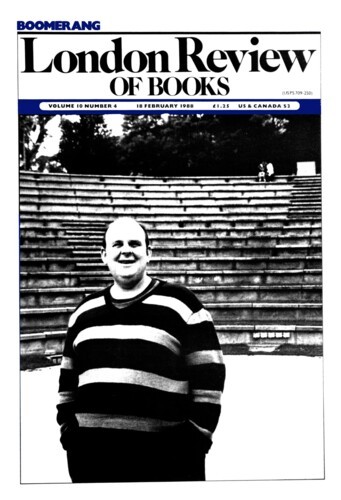Bags and Iron
Sylvia Lawson, 15 August 1991
Gossip makes the world go round, and we always want the stories of the gods. So biography prospers, and whatever’s between its covers, the big one is always a glossy commodity, further upmarket than most fiction. The hype for this one was noisy and predictable: excerpts, interviews and even reviews focusing on homosexual love-lives, Patrick White’s awful temper, and the detective-biographer’s own gripping adventures getting hold of 2500 letters. A magazine cover shows the author, companion and dog arranged in a pastoral trio in the Fifties. Towards an Australian Bloomsbury? There has to be more going on. It’s not enough to confirm the greatness of greatness; we want to know our business with the dead.





